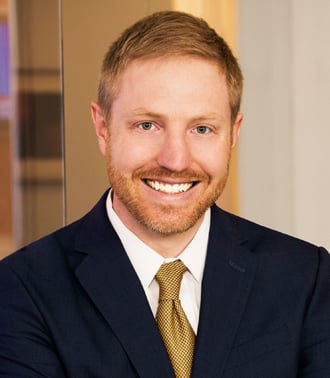Lit Alerts—December 2022
Copyright: Radio Personality’s Right-of-Publicity Claims Preempted by Copyright Act, Second Circuit Holds
In Melendez v. Sirius XM Radio, the US Court of Appeals for the Second Circuit recently addressed the scope of the Copyright Act’s preemption of state-law right-of-publicity claims in a suit brought by a former radio personality. The plaintiff, John Melendez, spent nearly two decades as a performer on The Howard Stern Show, where he became known for conducting “impertinent, confrontational and intentionally clueless” interviews of politicians and celebrities. After he left the show, Sirius XM acquired the license to air past episodes involving Melendez and began running on-air and online advertisements featuring him. Melendez sued Sirius XM for breach of his right of publicity under California common law and statutory law, which protect an individual’s name and likeness from unauthorized use.
The Second Circuit affirmed dismissal of Melendez’s case on grounds that the right-of-publicity claims he alleged were foreclosed by the federal Copyright Act, which preempts state-law claims asserting rights equivalent to those within the general scope of copyright. Within the Second Circuit, courts apply a two-part conjunctive test for preemption, considering first, whether the state-law claim applies to a work that falls within the subject matter of copyright (the “subject matter” requirement) and second, whether the claim asserts rights that are equivalent to any of the rights within the general scope of copyright (the “equivalence” or “general scope” requirement). The court held both parts satisfied. The first was met because Melendez did not allege any use of his name or likeness separate from airing excerpts of the archival episodes in which he appeared, any manipulation of the excerpts to extract his likeness or bring it into focus, or any usurpation of his identity to sell an unrelated product or service. The second requirement was satisfied, as well, because Melendez’s claims were ultimately aimed at stopping the reproduction of copyrightable works that embody his identity, a right that is equivalent to rights protected under the Copyright Act.
Arbitration: Broad Arbitration Provision Creates a Presumption of Arbitrability
In Local Union 97 v. NRG Energy, Inc., the US Court of Appeals for the Second Circuit recently reversed a trial court decision to dismiss a complaint compelling arbitration under a collective bargaining agreement (CBA). The circuit court ruled that the applicable arbitration provision was broad and therefore “create[d] a presumption in favor of arbitrability” that the defendant had not overcome.
Distinguishing CBAs from “ordinary” contracts, the court explained that “doubts about the scope of an arbitration clause in a CBA 'should be resolved in favor of coverage.'” A broad clause will give rise to a presumption of arbitrability that should apply unless it can be shown that the specific dispute would not be encompassed by the clause, under any interpretation.
Thus, because the trial court found the CBA contained a broad arbitration clause, it had erred in finding against a presumption of arbitrability. The defendant failed to overcome that presumption because it had not established that the CBA was not “susceptible of an interpretation that covers the asserted dispute.” The court also concluded that a claim is arbitrable even if frivolous.
Class Actions: Federal Court in California Certifies Seven Classes of Mazda Drivers Alleging Undisclosed Design Defect
In Sonneveldt v. Mazda Motor of America, Inc., the US District Court for the Central District of California recently certified seven classes of thousands of Mazda automobile owners who allege the automaker sold vehicles with defective water pumps. The plaintiffs claim that Mazda violated consumer fraud, deceptive practices and product liability laws by failing to disclose that a key component of a mechanical seal used in the vehicles’ water pumps is made of a material that degrades when exposed to high-temperature coolant. Mazda opposed certification of the classes on the grounds that the plaintiffs failed to provide common proof of damages or of the alleged defect across the class vehicles. Mazda also claimed the putative classes failed to satisfy the predominance requirement because the plaintiffs failed to explain what Mazda should have disclosed and did not submit evidence of class-wide reliance.
The court rejected Mazda’s arguments, certifying seven classes for vehicles purchased in California, Massachusetts, Michigan, Missouri, Ohio, Texas, and Virginia, and for automobile owners alleging violations of California’s Song-Beverly Act. It cited testimony from the plaintiffs that knowing about the alleged defect would have affected their decision to buy a class vehicle. The court also noted that the plaintiffs successfully articulated a shared defect across the proposed class vehicles, and it pointed to common evidence of safety risks and repair costs arising from the alleged defect. As a result, the court concluded that it was possible to infer class-wide reliance for the consumer protection and consumer fraud claims. On the other hand, the court refused to certify a class of vehicle purchasers in North Carolina and Louisiana. The proposed representative for the North Carolina class had purchased a car from a non-Mazda dealer and Mazda did not owe non-Mazda dealers a duty to disclose. In Louisiana, the plaintiffs failed to set forth a theory of damages that is redressable under the Louisiana Products Liability Act.
* Nicholas Zebrowski contributed to this newsletter. Mr. Zebrowski is a graduate of the University of Southern California Gould School of Law and is employed at Arnold & Porter's Chicago, IL office. Mr. Zebrowski is admitted only in California. He is not admitted to the practice of law in Chicago, IL.
© Arnold & Porter Kaye Scholer LLP 2022 All Rights Reserved. This newsletter is intended to be a general summary of the law and does not constitute legal advice. You should consult with counsel to determine applicable legal requirements in a specific fact situation.



